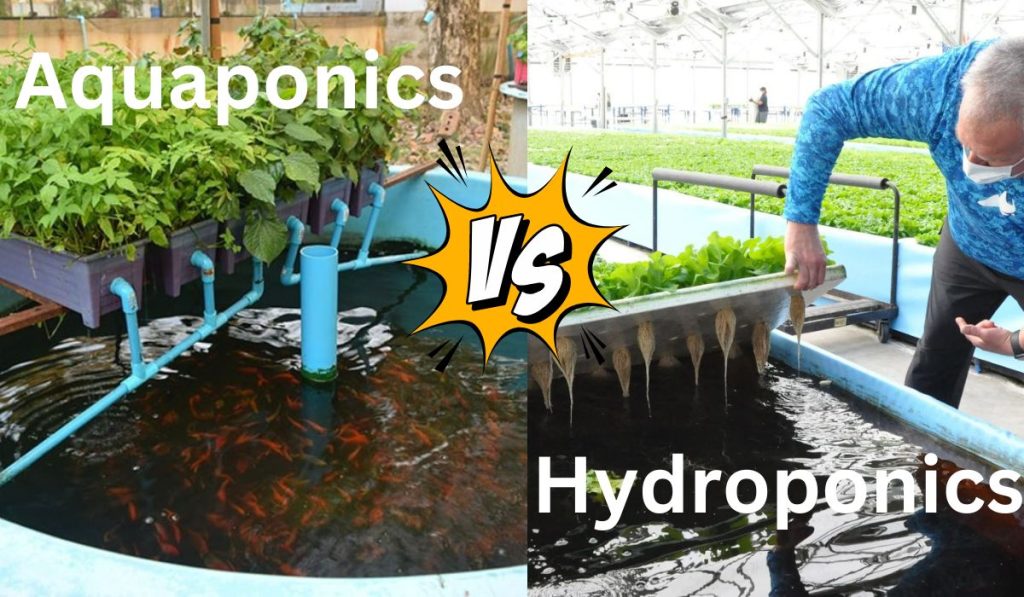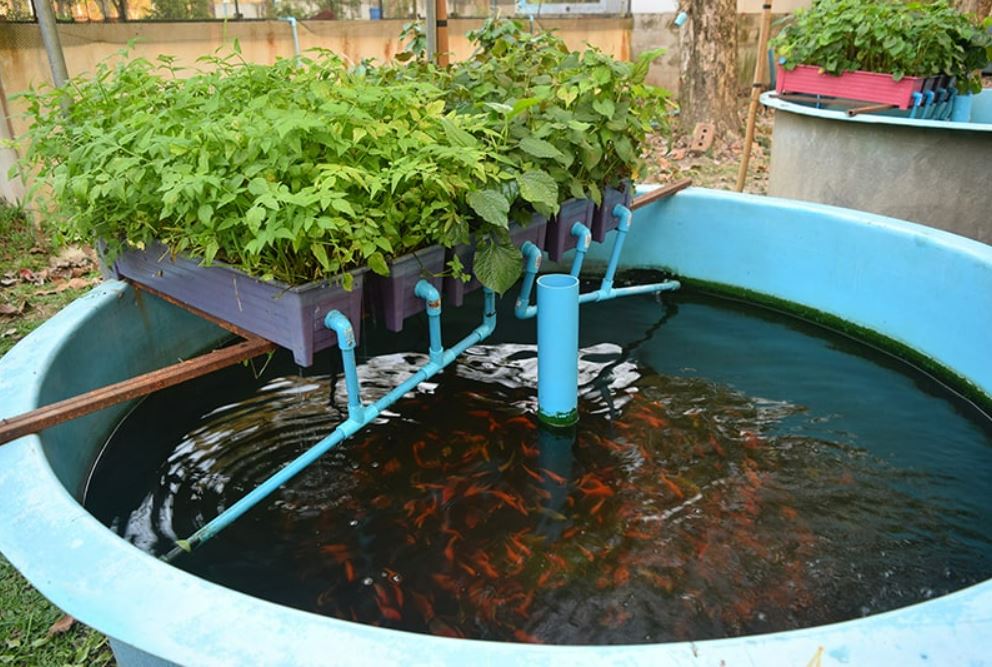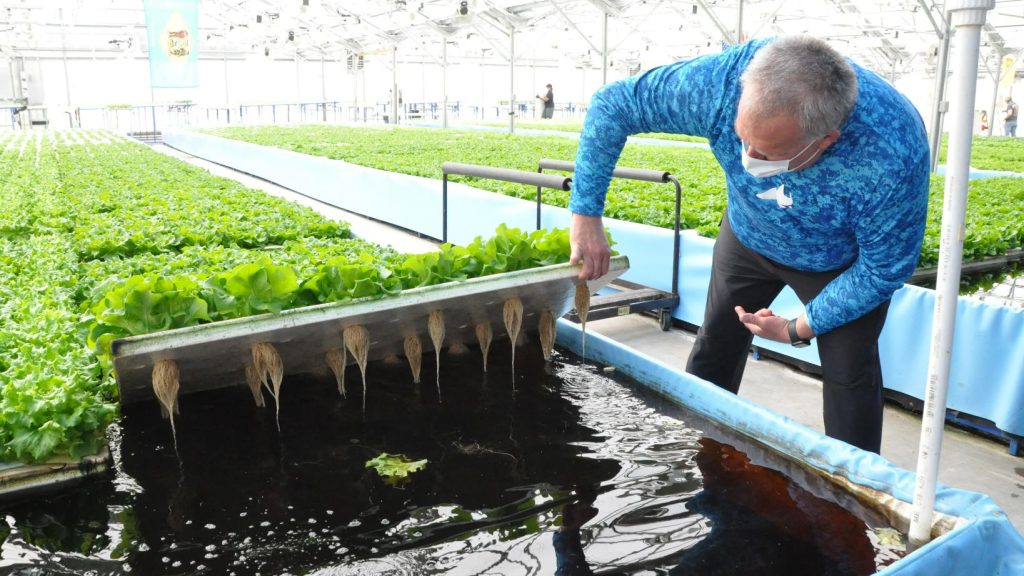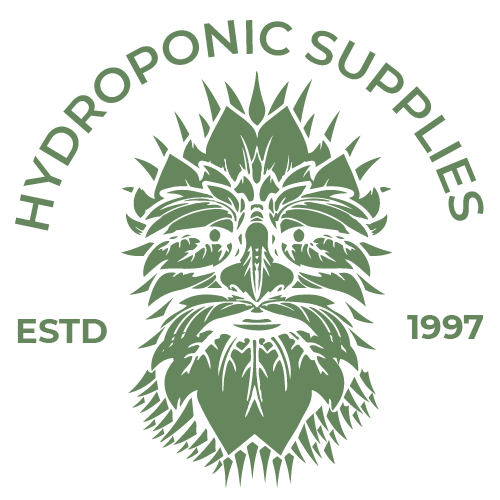
As space for traditional farming becomes scarce, the demand for fresh and organic produce continues to rise. This has led to the increasing popularity of soilless cultivation methods among gardeners and farmers.
Two prevalent techniques among gardeners and farmers are aquaponics and hydroponics. While these methods share similar principles, they differ in their nutrient sources and setups.
DIY aquaponics and hydroponics systems have gained popularity as people seek more control over the quality and source of their food. hydro shop has become a go-to place for indoor growers, as they offer a fantastic selection of specialized soilless systems suited to urban farming.
Many aspiring urban farmers debate whether to invest in aquaponics vs hydroponics systems for their indoor gardening ventures. This article explores ‘What are hydroponics and aquaponics?’, the distinctions and similarities between aquaponics vs hydroponics, to help you decide which approach suits your needs best.
A. Aquaponics aka Fish Farming
Let’s first discuss aquaponics farm before we define hydroponically. Aquaphonics is a revolutionary system that combines aquaculture (fish farming) with hydroponics (soilless plant cultivation) in a symbiotic environment. In this closed-loop system, fish are raised in a tank, and their waste produces nutrient-rich water.
This nutrient-rich water is then channelled to grow beds where plants are cultivated. The plants, in turn, act as a natural filter, cleansing the water for the fish. The cycle perpetuates, creating a self-sustaining ecosystem where both fish and plants thrive. The aquaponics farm produces organic vegetables and fresh fish without the need for chemical fertilizers or pesticides.
Aquaphonics is an innovative method of sustainable farming to increase food production while conserving water resources. Thanks to the aquaponics farm’s automated monitoring systems, the plants and fish receive optimal conditions for growth.
The internet is a great resource for finding tutorials and guides on creating a DIY aquaponics setup at home. If you are interested in starting a small indoor aquaponics farm, you need to find a local aquaponics WA shop in your area.

Aquaponic System Overview
- Main Components:
Aquaculture (Fish Tank) + Hydroponics (Grow Bed)
- Aquaculture (Fish Tank):
Houses aquatic animals (fish, crayfish, etc.).
Fish waste (ammonia-rich) is produced.
- Hydroponics systems (Grow Bed):
Contains plants (vegetables, herbs, etc.).
An inert medium (gravel, clay pellets) supports the plants.
- Water Flow and Filtration:
Water from the fish tank is pumped to the grow bed.
Beneficial bacteria convert ammonia into nitrates (nutrients for plants).
Plant roots filter and clean the water.
Filtered water returns to the fish tank.
- Plant Growth:
Plants absorb nutrients (nitrates) from the water.
- Fish Health:
Clean and oxygenated water supports fish health.
Advantages of Aquaponics
- Sustainable: Aquaponics significantly reduces water consumption as the water is continuously recycled within the system. It also requires less land compared to traditional farming, making it an eco-friendly option.
- Natural Fertilization: In aquaphonics systems the fish waste provides organic nutrients for the plants, eliminating the need for synthetic fertilizers. This results in healthier, pesticide-free produce.
- Enhanced Plant Growth: Plants in aquaponics systems grow faster and yield higher outputs due to the constant availability of nutrients in the water.
- Diversity: Aquaponics allows the cultivation of both fish and a variety of plants, providing a diverse and nutritious harvest.
- Low Disease Risk: The closed-loop system minimizes the risk of pests and diseases, making aquaponics easier to manage.
Disadvantages of Aquaponics
- Initial Setup Cost: The initial investment in setting up an aquaponics system can be relatively high compared to traditional farming methods.
- Learning Curve: Operating an aquaponics system requires understanding the delicate balance between fish, plants, and bacteria, which can be challenging for beginners.
- System Complexity: Maintaining the ideal conditions for both fish and plants can be intricate, requiring continuous monitoring and adjustments.
B. Hydroponics aka Water/Aqua Farming
Now comes the question of ‘What is hydroponics?’ Let’s explore the hydroponics definition. Hydroponics setup is a soilless farming technique that involves cultivating plants in a nutrient-rich water solution, providing all the essential elements required for growth.
Instead of soil, in hydroponics systems plants are supported using an inert medium like perlite, vermiculite, or rockwool, allowing their roots to absorb the nutrients directly from the water. Hydroponics’ advantage lies in its ability to save water and promote efficient nutrient uptake in plants, making it an environmentally-friendly method of farming.
The internet is a valuable resource for finding information about the hydroponics definition and setting up your hydroponics system. By browsing ‘hydroponics store near me’ you can easily access a wide range of hydroponic systems, making it easy for beginners to choose the most suitable one.
Many restaurants source their fresh herbs and greens from local hydroponics Perth farms. Certain hydro shop offers workshops and seminars for those interested in learning more about ‘How does hydroponic garden work?’. Perfect for beginners looking to define hydroponically and explore innovative gardening methods.

How Does Hydroponic Garden Work?
- Main Components:
Reservoir (Water Tank) + Growing Trays/Containers
- Reservoir (Water Tank):
Holds a nutrient-rich water solution.
Equipped with a pump and aerator.
- Growing Trays/Containers:
Hold the plants in a hydroponics setup (vegetables, herbs, etc.).
An inert medium (rock wool, perlite, etc.) supports the plants.
- Water Flow and Nutrient Delivery:
The pump circulates the nutrient solution from the reservoir.
- Plant Growth:
Plants absorb nutrients directly from the water solution.
- Aeration:
The aerator adds oxygen to the water solution.
Hydroponics Advantage
- Water Efficiency: Hydroponic systems use up to 90% less water compared to conventional soil-based farming, making them ideal for arid regions or areas facing water scarcity.
- Faster Growth: Many farmers are now embracing soilless gardening systems due to the hydroponics advantage of faster yield of fresh produce. With direct access to nutrients, plants in hydroponics setup grow faster, resulting in quicker harvests.
- Space Saving: The hydroponics advantage also extend to urban farming, as it allows people to grow fresh produce in limited spaces. Hydroponics systems can be practised vertically, maximizing space utilization and allowing farmers to grow more crops in smaller areas.
- Better Control: Farmers have precise control over nutrient levels, pH, and other environmental factors in a hydroponics setup, leading to healthier and more consistent crop yields.
- No Soil-Borne Diseases: By eliminating the use of soil, the hydroponics cycle minimizes the risk of soil-borne diseases and pests.
Hydroponics Disadvantages
- Dependency on Technology: Hydroponic systems heavily rely on technology and electricity to maintain the appropriate environment, which could be a challenge in case of power outages.
- Nutrient Management: Ensuring the right balance of nutrients is crucial in a hydroponics setup, and any imbalance can harm plant growth.
- Initial Start-Up Cost: Establishing a hydroponic setup with the help of a hydro shop can be costly, especially for large-scale operations.
Aquaponics vs. Hydroponics: Core Differences
Urban farmers and gardeners often compare and contrast the benefits of aquaponics vs hydroponics to determine which method suits their needs best. If you are an urban dweller with limited outdoor space, you can rely on a local ‘hydroponics store near me’ to grow fresh vegetables and herbs in your apartment.
The table below summarizes the main differences between aquaponics vs hydroponics:
| Aspect | Aquaponics | Hydroponics |
| Nutrient Source | Fish waste | Chemical nutrients |
| System Complexity | More complex. Due to fish involvement. | Less complex. No fish component. |
| Sustainability | Highly sustainable. Closed-loop system. | Moderately sustainable. Requires input. |
| Running Cost | Higher running cost | Operational cost varies |
| Start-up Cost | Higher start-up cost | Lower start-up costs |
| Nutrient Control | Natural nutrient release by fish. | Precise nutrient control by growers. |
| Fish Production | Possible. Fish system | Not applicable. No fish |
| Profitability | Profitable due to alternative fish food for fish. | Less profitable due to the scarcity and price of chemical nutrients. |
| Productivity | Higher yield. Income from both fish and plants. | Lower yield. Income only from plants. |
| Maintenance | Less maintenance. Mimics nature. | More maintenance. Due to chemical nutrients and water replacement. |
| pH | Ideal range: 6.8 to 7.0 | Ideal range: 5.5 to 6.0 |
| Ease of Use | Complicated set-up. | Easier to set up and control. |
Aquaponics and Hydroponics: Common Features
| Aspect | Aquaponics | Hydroponics |
| Soilless Cultivation | Yes | Yes |
| Water Efficiency | High | Very High |
| Pest & Disease Risk | Low | Low |
| Crop Variety | A wide range of plants can be grown. | A wide range of plants can be grown. |
| Space Efficiency | Suitable for small spaces and vertical farming. | Suitable for small spaces and vertical farming. |
| Environmental Impact | Low | Low |
Which is Better? Aquaponics or Hydroponics?
Choosing between aquaponics vs hydroponics depends on your specific needs, resources, and preferences. DIY aquaponics and hydroponics cycle techniques can supplement your income and diversify the crop options and availability. Your local hydroponic shops Perth can offer expert advice and workshops to help you get started with hydroponics systems and aquaponics farm.
The aquaponics farm’s water-saving approach makes it an environmentally friendly and resource-efficient solution for agriculture. Aquaphonics excels in sustainability and offers the added benefit of fish production, making it an attractive option for those seeking a holistic approach to farming. However, its complexity and initial investment might deter some newcomers.
Hydroponics Perth has become a popular topic among urban gardeners. Hydroponics systems shine in water efficiency, faster plant growth, and lower setup costs. Hydroponics cycle grants growers full control over the nutrient composition, pH levels, and environmental factors. Nonetheless, hydroponics setup demands reliance on technology and a vigilant eye for nutrient management. Any local ‘hydroponics shop near me’ service option is the best source of hydroponic equipment and supplies.
In conclusion, both aquaponics vs hydroponics represent remarkable advancements in agriculture, offering viable solutions to modern challenges. If you prioritize sustainability, and natural fertilization, and are willing to embrace the intricacies, aquaponics might be your best choice. Conversely, if you seek a highly efficient system with lower startup costs and greater control, hydroponics systems could be the ideal fit.
Ultimately, your decision should be based on your personal goals, available resources, and willingness to adapt to the specific demands of each system. Whichever path you choose, rest assured that both methods i.e., hydroponics setup and aquaphonics, will undoubtedly contribute to a greener and more productive future for agriculture.
Aquaponics vs Hydroponics: Choose What Works Best for You
The choice between aquaponics vs hydroponics depends on your preferences, intent, and available resources. Hydroponics systems may suit those seeking chemical-based plant growth, while aquaponics offers an organic alternative.
Whether you’re an experienced hydroponics enthusiast or just getting started, explore your option before stepping into your local hydroponic store Perth. Carefully consider your needs, budget, knowledge, and desired harvest to make an informed decision on the best soilless gardening method for you. If you’re looking to elevate your gardening game and delve into the world of hydroponics, you’ve come to the right place. Our hydroponics Rockingham store proudly serves gardening enthusiasts with an extensive range of hydroponics setup supplies and equipment.
